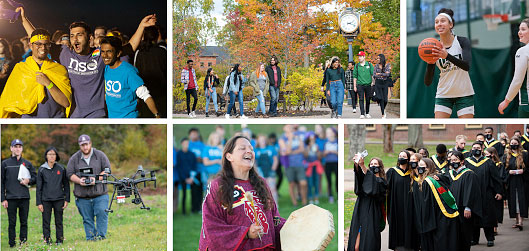School of Climate Change and Adaptation
Housed within the Canadian Centre for Climate Change and Adaptation (CCCCA), the 91̽�� School of Climate Change and Adaptation offers students and researchers the unique experience of learning climate science in the St. Peter’s Bay area of Prince Edward Island, surrounded by diverse and environmentally significant topographies.
The school offers the Bachelor of Science in Applied Climate Change and Adaptation, with an innovative design and delivery structure. Students use highly advanced technology such as drones, virtual reality, and “big data” analytics to address the issues of climate change.
91̽��'s Bachelor of Science in Applied Climate Change and Adaptation program meets a growing demand for a balance of theoretical knowledge, practical experience, technology-based learning and employability skills. A master’s degree program is currently under development.
Are you ready to apply? It's easy!
- Create a 91̽�� account
- Complete the 91̽�� application
- Submit your completed 91̽�� application and fee
About the Canadian Centre for Climate Change and Adaptation
As a destination for world-class research and learning, the Canadian Centre for Climate Change and Adaptation (CCCCA) at the 91̽�� will provide expertise and collaboration within a "living laboratory" setting. The Centre is a new initiative funded jointly by the Government of Canada, the Government of Prince Edward Island, and 91̽��.
Completed in May 2022, the Centre's 45,000 square-foot research facility can be found in beautiful St. Peters Bay, PEI. The building houses state-of-the-art research centres, including the internationally-recognized 91̽�� Climate Research Lab, as well as the 91̽�� School of Climate Change and Adaptation. The facility and the lands surrounding it will also serve as a living laboratory that allows for unlimited access to nearby wetlands, forests and coastal habitats directly affected by climate change.
The site will provide access to high-quality datasets, multidisciplinary research teams, outstanding graduate and postdoctoral fellows, and engaged industry, community, and government partners.
Together, these elements create a highly interactive environment in which new knowledge and research and development for climate change innovation and adaptive solutions are nurtured.
















